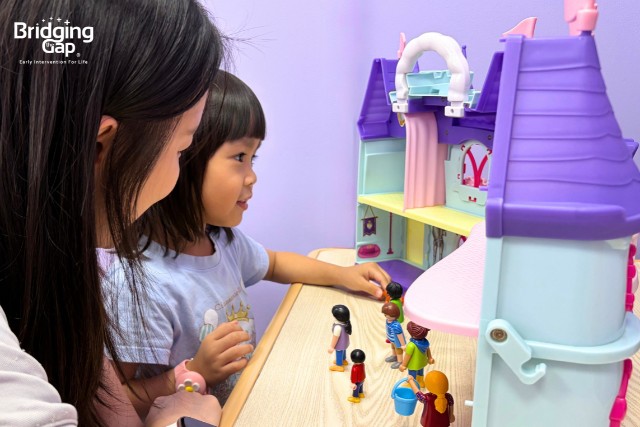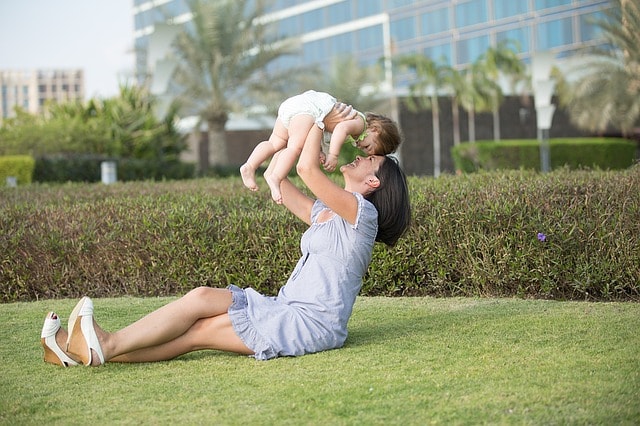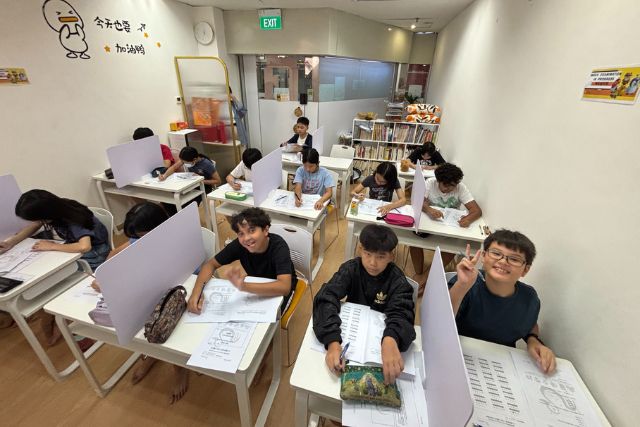In the whirlwind of parenting, don’t forget to be intentional about raising your kids. It’s a relationship, it’s a privilege, it’s a job and a work-in-progress.
We round up 10 hard questions every parent should get in the habit of asking themselves.

1. Did I praise the right things?
Praising a girl about her pretty dress doesn’t add any value to her abilities or character. Compliment your child on the things they do, rather than the passive way they are. For example, instead of saying, “You’re so cute” or “You’re so smart”, try pointing out specific actions, such as:
“You swam so fast.”
“You went up to say hi to the new neighbours by yourself. That was a friendly thing to do.”
“You washed your hands before dinner without anyone reminding you to.”
“You solved that puzzle!”
This doesn’t mean you should never say your child looks nice. Just be more mindful of the nature of your compliments so that they’re not all superficial.
2. Did I blame my child for my feelings?
Take responsibility for your own feelings and reactions. If you say things like, “You always have to make Mummy mad. Why do you make me yell all the time?” or “I’m angry and tired because of you,” you’re placing blame on your child.
Do that often enough and they might feel like they’re to blame for your every mood.
Instead of conveying that it’s all their fault, be intentional about expressing your worry and frustration.
For example, you might try, “When I ask you to brush your teeth repeatedly, and you still don’t do it, it makes me feel like you’re ignoring and disrespecting me.” Or “When you keep crying and don’t use your words to tell me what’s wrong, it’s hard for me to understand how to help you.”
3. Am I being a good role model?

Most of us want our children to be kind and considerate. But take a moment and notice how you’re talking to your helper and the tone of voice you take with waiters and servers. Your child is always watching. Beware of having double standards.
4. Am I giving them too much screen time?
When you’re out for dinner with the family, is it really necessary to let your kids use the iPad the entire time they’re sitting down? Perhaps you’re relying on on-screen entertainment more than necessary when you could be engaging with your kids more.
We get it. It’s easier and often, more peaceful when the kids can just zone out in front of Mickey Mouse Clubhouse so that you can eat your char kway teow in peace. But don’t be lazy about interacting with your kids. Seize these chances; you won’t have as many of them forever.
5. Do I have realistic expectations?
It’s impossible not to compare, but try your best to free yourself of expectations of how your kids ought to be, what they ought to achieve, based on your fear of losing out.
Should you have high standards? Yes. But those standards should be tailored to what you know about your child’s abilities, strengths and weaknesses. So if your kid never showed any interest in taking up the violin and clearly dreads practising, is it entirely realistic for you to expect them to nab that violin solo?
6. Why do I want my child to be more ____?
Fill in the blank: “Why do I want my child to be more ____? Is it actually bad that they’re ____ though?”
For example, if you’re disappointed that your child often acts quiet and shy, ask yourself why. Is there something wrong with being more reserved?
Try to see the potential in how they are, in their interests. If they’re reserved and slow to initiate in social settings, perhaps that’s because they’re observant. What’s the harm in that?
There’s a chance you’re projecting your own insecurities and wishes on your kid. Maybe you’ve always been the outspoken, charismatic one in the group – and you’re stumped as to why your own kid is the opposite. Appreciate them for who they are.
Or perhaps you want your child to live out your unfulfilled “destiny”. You used to be a talented pianist, but your dream was never fulfilled, and now you’re placing your hopes on your child. “Why do I want my child to be more musical? Is it actually bad that they’re more into sports though?”
7. What did I do today that helped empower my child’s independence?

As parents, our natural instinct is to protect. But are there things you’re doing for your child that they could be doing for themselves? When they hear you say, “I trust that you can” and “I believe you can figure it out,” it helps boost their self-confidence and self-trust.
⇒ Related Read: 10 empowering phrases all children need to hear from parents
8. What are my top goals as their parent?
Some parents care the most about bringing out their children’s academic potential.
Your goal might be different. You might count a test score as less important than your child reaching out and sitting with the lonely outcast kid at lunch. Some parents are religious; others are not. How do you want faith to play in your child’s upbringing?
Ask yourself what your top goals as a parent is, and then figure out how to consciously work toward them with your kid on a consistent, actionable basis.
9. Are you creating a home environment that brings out the best in your kid?

The family environment is pivotal in fostering confidence and a sense of security in your child. Here’s how to create a more caring and loving home.
10. Were you present today?
Parents are multi-taskers and most of us are expert worriers. You’re sitting at the dinner table, but your mind is elsewhere – on an unfinished project, an impending deadline, an important meeting to prepare for, a doctor’s appointment to schedule, a leak to repair.
But when was the last time you really listened to your child? When you took the time to sit down and play or colour with them – without looking at your phone?
By Jenny Tai.
If you find this article useful, do click Like and Share at the bottom of the post, thank you.
Like what you see here? Get parenting tips and stories straight to your inbox! Join our mailing list here.



























































